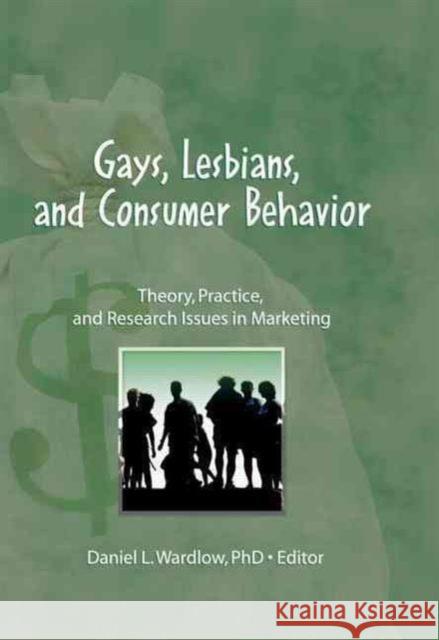Gays, Lesbians, and Consumer Behavior : Theory, Practice, and Research Issues in Marketing » książka
Gays, Lesbians, and Consumer Behavior : Theory, Practice, and Research Issues in Marketing
ISBN-13: 9781560230779 / Angielski / Miękka / 1996 / 288 str.
Gays, Lesbians, and Consumer Behavior : Theory, Practice, and Research Issues in Marketing
ISBN-13: 9781560230779 / Angielski / Miękka / 1996 / 288 str.
(netto: 135,22 VAT: 5%)
Najniższa cena z 30 dni: 135,95
ok. 22 dni roboczych.
Darmowa dostawa!
Marketing practitioners have begun to target gays and lesbians as consumers, although little is known about their buying behavior, expectations in consumption, or of their treatment in the marketplace. Gays, Lesbians, and Consumer Behavior is the first attempt at presenting the roles, treatment, and expectations of gays and lesbians as consumers in the marketplace. It asserts that homosexuality often entails a fully elaborated lifestyle, many details of which revolve around, and reflect differences from, mainstream society. These findings are of practical value since consumers, businesses, channels of distribution, and media forms are all segmented, addressing a diversity of attitudes and behaviors and reaching consumers through targeted marketing. In Gays, Lesbians, and Consumer Behavior, Editor Daniel L. Wardlow brings together research which builds upon the theoretical and empirical bases of consumer behavior. Each chapter contributes to an understanding of consumption in the gay and lesbian subculture and raises a series of questions and ethical concerns to guide future research in this area. Chapters center on the four broad themes of consumption rituals, presentation through consumption, discrimination and tolerance, and application and accommodation. Specific topics covered include: ritualistic consumption in a sub-cultural context lesbian consumption of lesbian imagery discrimination issues in retail customer service and hotel reservations effects of homosexual imagery on advertising gift-giving behavior among homosexuals using marketing in HIV/AIDS prevention counseling market profiling and strategy suggestions accommodating gays and lesbians as consumers in the marketplace The research presented in Gays, Lesbians, and Consumer Behavior draws from a diverse collection of academic disciplines and fields of inquiry to present a glimpse at the consumption behavior of gay men, lesbians, and bisexuals, and at the marketing response to these different populations. As a pioneering effort, Gays, Lesbians, and Consumer Behavior's scope is not comprehensive, but deliberately broad to allow researchers to delineate avenues for subsequent research. Many of the chapters are empirical or descriptive in nature and contain insights for academic and practitioner alike. Academics in marketing, psychology, sociology, consumer behavior, gay and lesbian studies, and cultural anthropology will find this a valuable addition to their reading material. Marketing, advertising, and retailing professionals will be able to put the information and findings to practical use as they aim to reach more consumers and broaden their audience.











